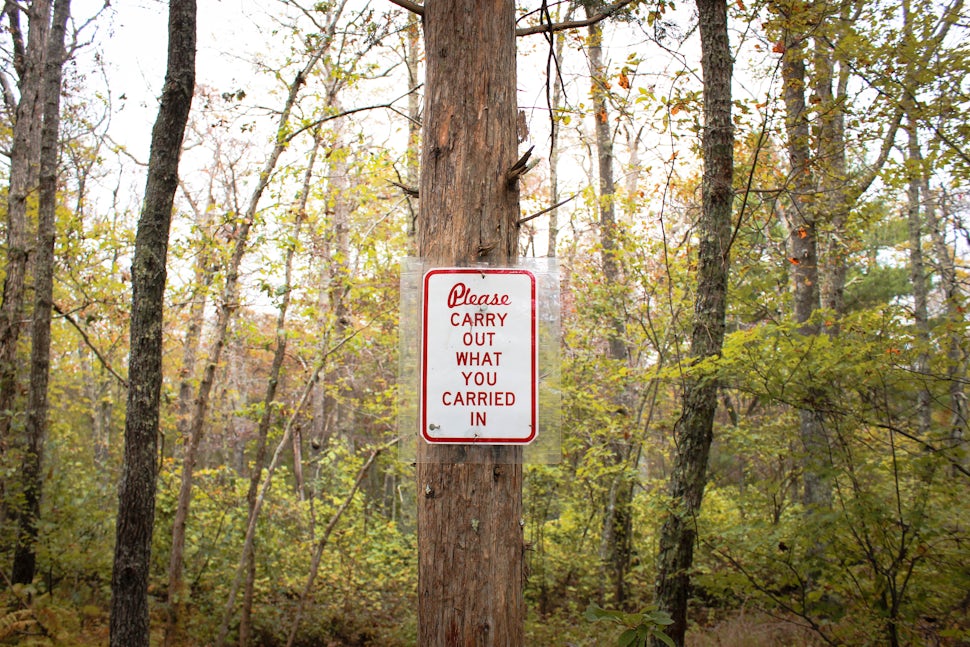Please Carry Out What You Carried In
"The Earth does not belong to us: we belong to the Earth" –Marlee Matlin

Earth was here before humans. Trees, plants, soil, flowers, animals, rivers, lakes, oceans, leaves, roots. Nature; it existed before we existed. But it not only existed before us, it thrived before us, it developed and flourished and was ever expanding, making the Earth a magnificently beautiful place all on its own.
Humans came along and we thrived off of this said land. We used its fruits to create things, to feed us, to learn from. Over time these “things” became more and more advanced, to the point where nothing looked like it had been derived from nature at all! Paper, plastic, glass, metal, endless materials - endless possibilities.
We certainly use these materials in our everyday life. But how many of them have permanent uses? Barely any. Where does much of it end up? Right back in nature. Harming it, destroying it, killing it. We as humans have an astronomical effect on nature and its fate. Littering is just one way in which we abuse the place we live, and a potent one at that. Do not hurt the plants that decorate our planet, do not hurt the animals that live within it, do not taint the soil and the water that gives us life.
Admire it. Explore it. Protect it.
Every year millions of birds, fish, and animals die from litter.
Animals can suffocate, starve, get stuck, or get infected - all from different types of litter.
When garbage is dumped it can kill or stunt plant growth.
Dumping of hazardous waste seeps into surrounding soil and can cause ground water pollution.
It takes glass up to one million years to decompose.
It is one of the longest lasting man-made materials.
It is questionable whether plastic bags ever fully decompose.
It can take up to one-thousand years of sunlight, but even then it's technically just broken down into smaller granules of plastic.
We currently recover only 5% of the plastics we produce.
Although every state has laws against littering, it is arguable how effective they are.
The best thing to do is to educate and spread awareness on the effect of littering.
Cigarette butts make up more than 50% of littered items.
They not only contain plastic, but harmful chemicals that can seep into the ground and water.
Litter costs the United States over $11 billion each year.
But still, much clean-up is dependent on volunteers.
Most people will not pick up litter if they see it.
But this would ultimately help the situation.
Nature. Admire it. Explore it. Protect it.
[All photos taken by me of Frank Knowles Little River Reserve in Dartmouth, MA and the trash found within it. This photo essay has a book counterpart which can be seen here: https://www.lisablackdesign.co...]We want to acknowledge and thank the past, present, and future generations of all Native Nations and Indigenous Peoples whose ancestral lands we travel, explore, and play on. Always practice Leave No Trace ethics on your adventures and follow local regulations. Please explore responsibly!
Do you love the outdoors?
Yep, us too. That's why we send you the best local adventures, stories, and expert advice, right to your inbox.























